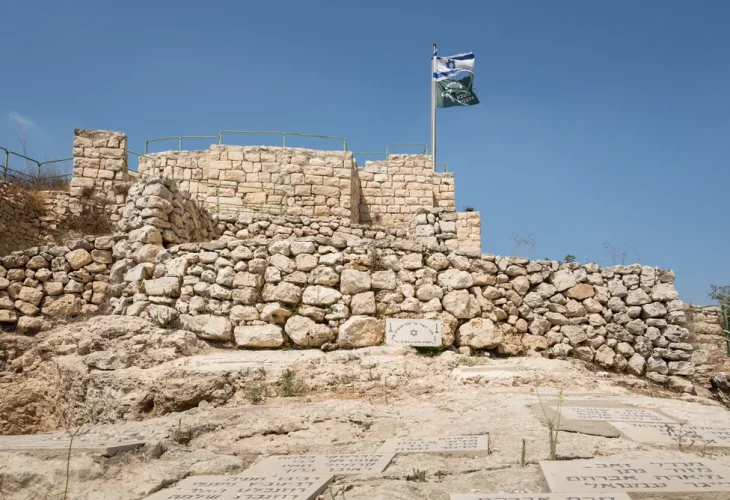A Miraculous Turn: The Victory at Kastel
Many Jewish lives were lost attempting to reach Kastel. Against all odds, divine intervention turned the tide.
 (Photo: shutterstock)
(Photo: shutterstock)Abd al-Qadir al-Husseini was a significant threat to the Jewish community in the Land of Israel. Yet, remarkably, both he and the threat were removed suddenly and miraculously.
Al-Husseini came from a "distinguished" lineage: his father, Musa Kazim al-Husseini, was the mayor of Jerusalem during the British Mandate, and his cousin was Amin al-Husseini, the Grand Mufti of Jerusalem and a friend of Hitler. Naturally, young Abd al-Qadir would join the path of terror and killing, too.
Starting in 1936, he founded the "Holy Jihad Army," whose so-called holiness manifested in attacking vehicles traveling between Jaffa and Jerusalem. This act of terror later inspired even more severe and threatening plots.
The British fought against the Arab rebels, prompting al-Husseini to go underground and even escape to Iraq for a time. He traveled to various countries, and some believe he was in Germany during World War II, learning the art of Jew-hatred and killing. In 1947, with the British Mandate nearing its end, al-Husseini began organizing and training an army to "liberate Palestine." He led hundreds of Arabs around Jerusalem, creating a blockade. Convoys from Tel Aviv to Jerusalem were brutally attacked from the heights of surrounding hills and mountains. The fortified area called "Kastel" (meaning fortress in Roman) was under his control. Jewish soldiers repeatedly attempted to capture it but failed. Reaching it required climbing a steep and high mountain, topped by a fortress teeming with Arab snipers. Many Jewish lives were lost trying to reach Kastel.
Naturally, there seemed no chance, but Hashem willed otherwise. A lookout from the Haganah took a chance and shot at two Arabs spotted from afar. By the grace of Hashem, the shot killed none other than the great commander, Abd al-Qadir al-Husseini himself. If that miracle wasn't enough, Hashem clouded the Arabs' judgment, leading them all to gather for his funeral without considering its military implications. Thousands assembled at his brother's house in Jerusalem, where al-Husseini lay in a glass coffin, showered with hundreds of flowers. His funeral was grand, marked by cries, wailing, lamentation, and gunfire — which led to some Arab deaths. He was buried on the Temple Mount.
When the Arabs returned from al-Husseini's funeral, they found that Kastel had already been captured by the Jews. Anyone who dared to approach was met with bullets from the fortress heights. They gathered their belongings and fled, lifting the siege on Jerusalem. The Jews had light and joy.

